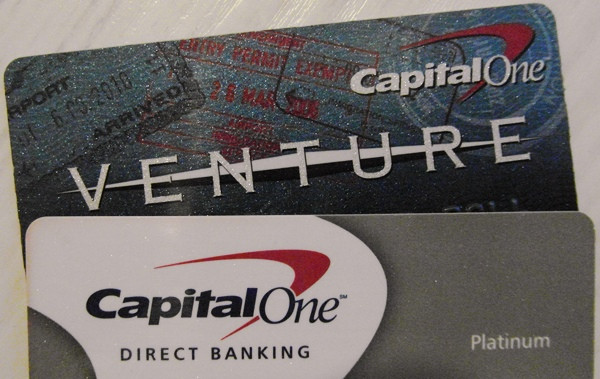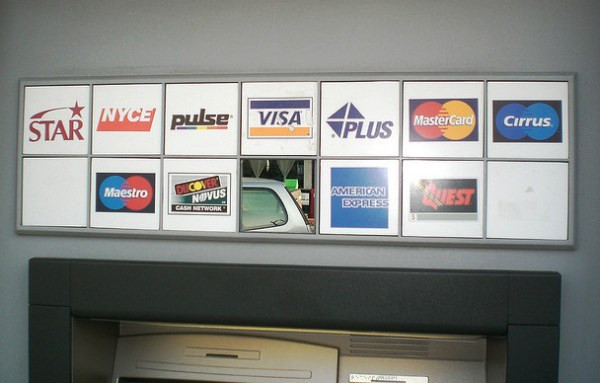Capital One has long been advertised as a traveler-friendly bank, known for no foreign transaction fees and the promise of convenient banking while abroad. Before embarking on an international career break, many globetrotters, including myself, have considered Capital One for their financial needs. Drawn in by the allure of fee-free transactions and the bank’s widespread recognition, opening checking, savings, and credit card accounts with Capital One seemed like a smart move over a year prior to departure.
 Capital One Credit and Debit Cards for Banking and Travel
Capital One Credit and Debit Cards for Banking and Travel
However, just a month into my travels, a stark reality emerged: Capital One is not as great for travelers as it seems. In fact, the experience prompted a reconsideration of banking choices, leading to a switch to a different institution before future overseas adventures. Here’s a deep dive into the reasons why Capital One might not be the ideal bank for those with wanderlust.
Debit Card Incompatibility Overseas: A Major Drawback
One of the most significant issues encountered was the unreliable functionality of the Capital One debit card at international ATMs. Despite bearing the Mastercard logo, which suggests broad acceptance, the reality on the ground was quite different.
In Russia, numerous ATMs rejected the card, with some machines in St. Petersburg and Krasnoyarsk even confiscating it. Upon contacting Capital One, the explanation was that the debit card operated on the Cirrus network. This meant it would only function in ATMs that were part of the Cirrus network as well. The advice was to look for the Cirrus logo – a logo conspicuously absent from the debit card itself. How are customers supposed to know about Cirrus compatibility without any clear indication on the card?
Cirrus-compatible ATMs proved to be scarce, especially in regions like Eastern Europe, the Caucasus, and Central Asia. Finding a compatible ATM often involved trying multiple banks – sometimes as many as eight or nine. Many ATMs lacked visible logos, leaving users to guess about card acceptance, a risky proposition when card confiscation was a prior experience. In countries like Azerbaijan, Kazakhstan, and Kyrgyzstan, frustration led to using a backup Visa card from US Bank, incurring unwanted ATM and foreign transaction fees – the very fees Capital One was chosen to avoid.
 Searching for Cirrus Logo on an ATM Machine for Capital One Card Compatibility
Searching for Cirrus Logo on an ATM Machine for Capital One Card Compatibility
The limited acceptance of the Capital One debit card significantly hampered financial accessibility while traveling, undermining a core expectation of a travel-friendly bank.
Replacement Cards Sent Stateside: Useless When Abroad
Losing a debit card to an ATM in St. Petersburg prompted another critical discovery about Capital One’s services for travelers: they do not send replacement cards overseas. When inquiring about a replacement, Capital One confirmed they would only dispatch a new card to the mailing address on file in the United States.
This policy presents a major problem for anyone traveling long-term or without a fixed U.S. address. In this instance, retrieving the confiscated card from the Russian bank became essential because the alternative was impractical. Waiting for a card to be sent to a U.S. address and then forwarded internationally was not feasible, especially considering that Russia prohibits the import of credit and debit cards.
This stands in stark contrast to other banks that cater to travelers. Charles Schwab, for example, has a proven track record of sending replacement cards internationally. Travel bloggers like Kate McCulley, Ryan Rubi, and Val Bromann, as well as associates of Talon Windwalker and Bobbi Lee Hitchon, have all received replacement cards from banks like Charles Schwab and TD Bank while traveling in various countries, including Spain, Belize, Honduras, Canada, and Thailand.
Capital One’s inability to send replacement cards internationally is a significant disadvantage for travelers who rely on having access to their funds while abroad. This policy creates unnecessary stress and potential financial insecurity when card loss or theft occurs during travel.
Unhelpful Customer Service During Card Emergencies
The experience of losing the debit card in Russia also highlighted shortcomings in Capital One’s customer service. The Russian bank that confiscated the card was willing to return it if Capital One would send a fax authorizing the release. Despite this straightforward solution, Capital One refused to send the authorization fax, citing a policy against sending “ad hoc” letters.
This rigid adherence to policy, even when a simple exception could resolve a customer’s urgent problem, was perplexing. It demonstrated a lack of flexibility and a prioritization of internal rules over customer needs. While policies are important, there are times when bending them to assist a valued customer is not only appropriate but also good business practice. Interestingly, the Russian bank, with no vested interest in accommodating a foreign customer, eventually relented and released the card upon signing a form.
The fact that a foreign bank showed more willingness to help than the customer’s own primary bank left a lasting negative impression. It underscored a disconnect in Capital One’s customer service approach, particularly when dealing with travel-related emergencies.
Unfair Transaction Dispute Resolution: Siding Against the Customer
Another significant issue arose when disputing an unauthorized ATM transaction in Batumi, Georgia. After attempting to withdraw Georgian lari, an ATM malfunctioned, displaying indecipherable Georgian text, failing to dispense cash or a receipt, but returning the card. Despite the ATM appearing to reject the transaction, a debit of approximately $150 appeared in the Capital One account a couple of days later.
Filing a dispute with Capital One was cumbersome, requiring a mailed form, faxing, and multiple steps – a process that felt outdated in 2013, let alone today. More concerningly, the dispute was rejected based solely on the ATM owner’s claim that cash was dispensed. With no way to prove a negative (that cash was not received), it became a case of the customer’s word against the ATM owner, and Capital One sided with the foreign ATM operator.
This outcome is particularly troubling. A bank should advocate for its customers, especially when there is reasonable doubt about a transaction’s validity. Choosing to believe an unknown ATM operator over a long-standing customer erodes trust and raises serious questions about Capital One’s commitment to fair dispute resolution.
Questionable Fraud Detection: Misplaced Priorities
Capital One’s fraud detection system also exhibited inconsistencies. Consider these two scenarios:
(A) Suspicious Travel Transactions: A series of transactions including a hotel bill in Tashkent, Uzbekistan, followed by multiple international flight purchases (Kyrgyzstan to Latvia, Latvia to Spain, Spain to Chicago), and train tickets from Nukus, Uzbekistan to Aktau, Kazakhstan – all within a few days, mostly online.
(B) Mundane Domestic Transactions: Three separate visits to Target in Chicago over two days.
Surprisingly, the extensive and geographically diverse travel-related transactions in scenario (A) did not trigger any fraud alerts from Capital One. In fact, there was an expectation that these transactions should have raised a flag, to test the bank’s fraud detection capabilities. They did not.
Instead, the routine domestic transactions in scenario (B) – trips to Target in Chicago – were enough to trigger a fraud alert and freeze the Capital One credit card after the third visit. Reactivating the card required multiple phone calls over several days. While fraud detection is essential, the system’s focus seemed misaligned. Prioritizing in-person domestic transactions over a series of unusual international online purchases suggests a flawed approach to risk assessment.
Farewell Capital One, Hello Charles Schwab
Based on these cumulative negative experiences, the decision was made to transfer banking accounts from Capital One to Charles Schwab. Charles Schwab offers similar benefits to travelers, including no foreign transaction fees and ATM fee refunds. They also provide comparable online banking and mobile deposit features.
Crucially, Charles Schwab distinguishes itself by offering international replacement card services, a critical feature for frequent travelers. Moreover, Charles Schwab has a physical presence, offering the option to interact with bankers in person – a stark contrast to Capital One’s often impersonal customer service. Having a direct contact at Charles Schwab who knows you by name provides a level of personalized service and reassurance that is invaluable, especially when navigating financial issues abroad.
For travelers seeking a reliable and supportive banking partner, considering alternatives like Charles Schwab may be a prudent choice. While Capital One may appear attractive on the surface, its shortcomings in international functionality, customer service, and fair practices raise significant concerns.
Have you had issues with your bank while traveling?
Photo: Eliazar Parra Cardenas
